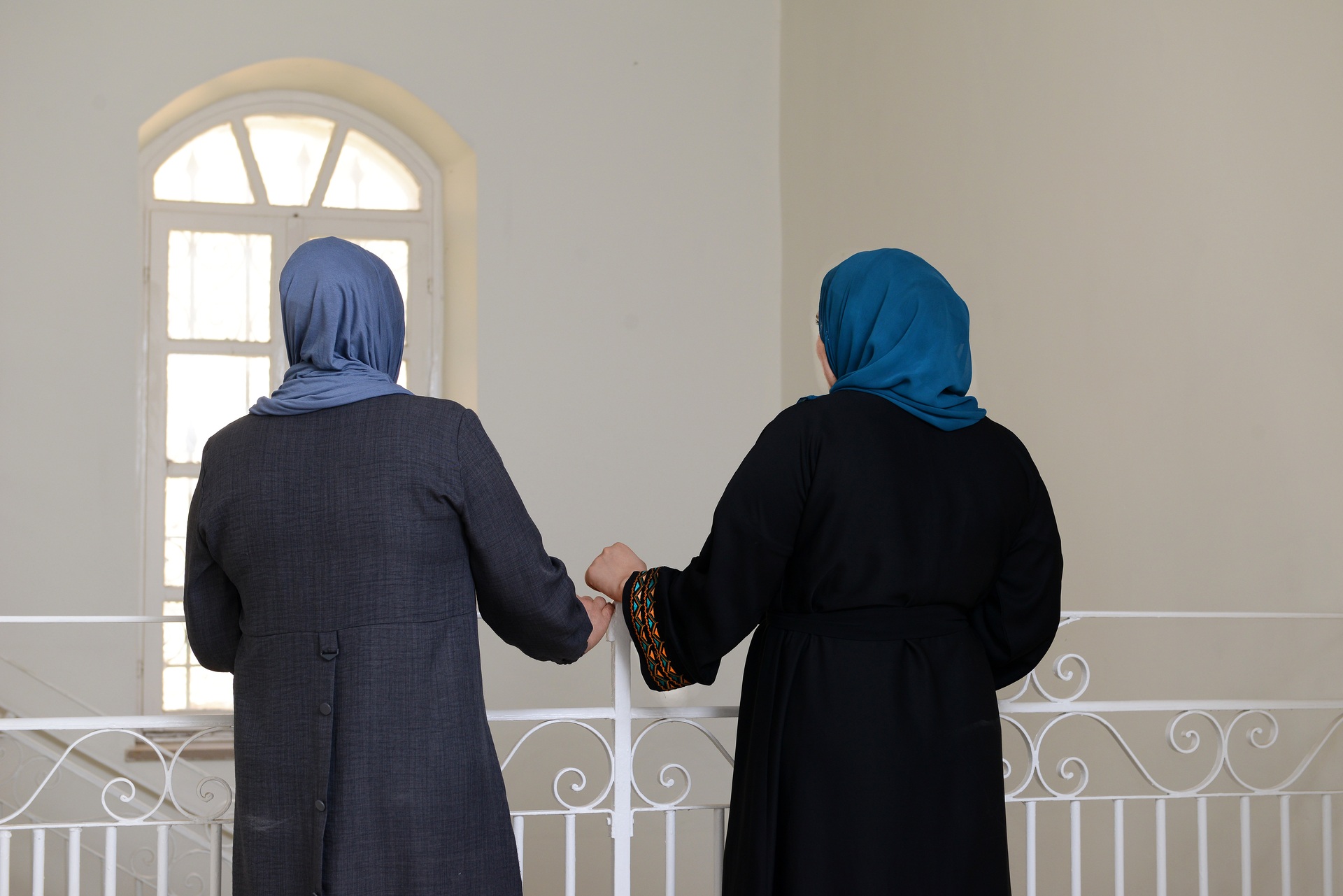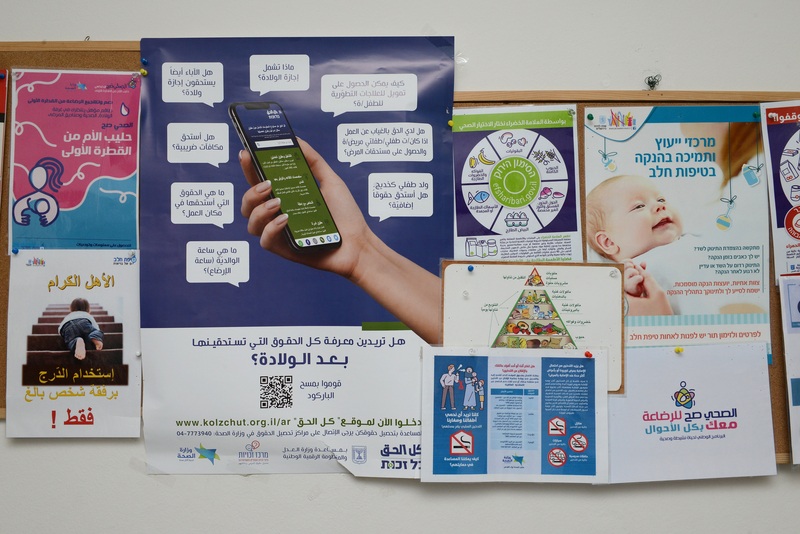Unlicensed Physicians: How Profit Became the Bottom Line for Healthcare in East Jerusalem – At Patients’ Expense
For the contractors running Israeli health maintenance organizations’ clinics in East Jerusalem, the main goal is to maximize income – which they do by hiring inexperienced doctors or Palestinians who don’t have an Israeli license to practice, by increasing the workload so that each consultation lasts no more than five minutes and by sending more and more people to emergency care. The Health Ministry, which oversees the entire mess, admits that ‘healthcare in East Jerusalem suffers from disparities stemming from its unique complexity.’ New figures show just how extreme the disparity between healthcare for Jews and healthcare for Arabs. A Shomrim investigation also published by Mako


For the contractors running Israeli health maintenance organizations’ clinics in East Jerusalem, the main goal is to maximize income – which they do by hiring inexperienced doctors or Palestinians who don’t have an Israeli license to practice, by increasing the workload so that each consultation lasts no more than five minutes and by sending more and more people to emergency care. The Health Ministry, which oversees the entire mess, admits that ‘healthcare in East Jerusalem suffers from disparities stemming from its unique complexity.’ New figures show just how extreme the disparity between healthcare for Jews and healthcare for Arabs. A Shomrim investigation also published by Mako

For the contractors running Israeli health maintenance organizations’ clinics in East Jerusalem, the main goal is to maximize income – which they do by hiring inexperienced doctors or Palestinians who don’t have an Israeli license to practice, by increasing the workload so that each consultation lasts no more than five minutes and by sending more and more people to emergency care. The Health Ministry, which oversees the entire mess, admits that ‘healthcare in East Jerusalem suffers from disparities stemming from its unique complexity.’ New figures show just how extreme the disparity between healthcare for Jews and healthcare for Arabs. A Shomrim investigation also published by Mako
‘They employ unlicensed doctors – and pay them less.’ Rima and Samira. Credit: Eyal Izhar

Daniel Dolev
October 28, 2025
Summary


Listen to a Dynamic Summary of the Article
Created using NotebookLM AI tool
“A year ago, I had a suspicious mole and I wanted to set up an appointment to see a dermatologist,” says Rima (not her real name), a resident of Kafr Aqab in East Jerusalem. “The secretary at my clinic – the Al-Bayan Clinic, which is operated by a contractor on behalf of the Clalit HMO – told me that they have a doctor with a license and one without. Of course, I wanted to see the licensed doctor and they arranged an appointment. When I turned up for my appointment, I waited for an hour and half before the secretary told me that the doctor apologizes but he won’t be coming in. I asked when the unlicensed doctor would be there and they told me he would come the next day, so I asked for an appointment to see him.”
Rima’s story is not unusual. Medical staff, patients and social activists who spoke to Shomrim all say that there is one key reason for this situation: most of the healthcare services in East Jerusalem are not operated directly by the HMOs, but by franchisees – which introduces a financial element to their considerations. Unlicensed medical teams, physicians who are falsely presented as specialists and a workload deliberately designed to see as many patients as possible: these are some of the tactics used to boost profits.
Combine this with the fact that the Health Ministry’s supervision is lax in the extreme – and that patients are often unaware of their rights – and it’s easy to see just how sick the system is. The doctor that Rima ended up seeing was a Palestinian physician who was not licensed to work in medicine in Israel. Under these circumstances, he should not be able to access the HMO’s computer system or write prescriptions, but, when the financial incentive is so great, there will always be ways to bypass any legal restrictions.
“They employ doctors from the West Bank who don’t have a license and they pay them less,” says Rima. “When I went to a gynecologist in Jabel Mukaber, I noticed that she never wrote her name on the documents she gave me. There was a different doctor’s name on them. At the time, she told me that it was the name of the doctor who opened my file when I came there for the first time. A little while later, after I had time to think, I realized that she was from the West Bank and that she didn’t have a license. She was working with a different doctor’s license.”
Using a different doctor’s license and so-called ‘specialists’
Dr. Hussam – not his real name – has worked for two franchisees in East Jerusalem.
“It’s a problem for all the HMOs,” he tells Shomrim. “There are several doctors working in the clinic, but the person who is listed in the patients’ file is the franchisee, if he is a doctor, or, a medical director, if there is one that the franchisee trusts. At the clinics I worked for, the franchisee was a physician. He was the manager, so to speak, and patients were registered under his name.”
Hussam goes on to give a more detailed view of how these clinics work from the inside. “On the very day that I started working at the Doctors’ House in Beit Hanina, they showed me which room to sit in and started bringing in babies. I asked why they were doing that. They replied that I was employed as a pediatrician. I had no idea! I had just completed my internship and was just starting to gain experience. So I was extremely cautious with all the infants I treated. But they would tell the patients that I was a pediatrician. That is what bothered me most. I had to tell worried mothers that I wasn’t a pediatrician, that I was a primary care physician – and that’s when the atmosphere turned unpleasant.”
Hussam adds that “the doctor who worked every morning as a pediatrician also wasn’t a pediatrician. Most of the patients believed that she was, but she had no specialist training in that field. Why not tell patients the simple truth? That they are seeing a general practitioner who has no specialist experience. I also did not have any experience. They were not telling the truth.”
According to Hussam, there were more physicians from the West Bank working in East Jerusalem until a few years ago. The phenomenon was curbed, in part, he says, because there are now more inexperienced Israeli doctors willing to work for less money. “I know doctors from the West Bank who work for these franchisees, but there are fewer now because there are lots of physicians in Jerusalem now who are finding it hard to get residencies, so they are willing to take whatever job is on offer.”
Employing doctors at the start of their career as a business model is problematic in itself, but the situation becomes even more egregious when the system increases the number of patients assigned to them in order to boost profits. To this, Hussam says, one has to add the fact that the clinics do not operate an ordered system of appointments, so patients show up and are seen by whichever physician happens to be there at the time, rather than their regular GP
“When a patient arrives at the clinic, they ask which doctor is present and are seen by whoever is there,” Hussam explains. “So, the doctors try to treat any acute issues, but no one is keeping an eye on chronic ailments. When patients don’t have a GP, it’s impossible to treat things like high blood pressure, which is the number one risk factor for heart attacks. There will be more cases of strokes and more complications.”
The upshot of this situation is that conditions which could have been resolved by a GP become emergencies, requiring that the patient be taken to hospital. “When there are more complications, there are more cases of sending patients to the ER. And if it’s a patient I don’t know suffering from something that has me worried, it’s accepted practice to send them to the ER. In the meantime, there are 20 patients waiting for treatment and I only have a few minutes to get to know them. I know some excellent doctors, but you cannot treat someone properly when you only get five minutes per patient.”
Unbearable workload and several times more ER referrals
According to data collected by the Forum for Equality in Health in East Jerusalem, clinics run by franchisees send three or four times more patients to the ER than clinics operated directly by the HMOs. The figures, which are being published here for the first time, are based on freedom of information requests submitted to the Clalit HMO, through which 63 percent of East Jerusalemites are insured.
One gynecologist who works in East Jerusalem and in the western part of the city tells Shomrim how, at franchisee-run clinics, everything comes down to the profit line: “These clinics employ unlicensed nurses. A franchise holder will pay a salary of 7,000 shekels a month to an Israeli nurse, but someone from the West Bank who doesn’t have a license will only get between 2,000 and 3,000 shekels. There are some specialists who see a patient every five or 10 minutes. That is substandard service.”
She adds: “For example, when I worked at the Clalit clinic in Beit Hanina, the ear, nose and throat specialist would come on Saturdays for two hours and all of the referrals from the previous week would try to see him during those two hours. It was the same with the orthopedic surgeon. They brought in a specialist for two or three hours a week and that covers all their bases and they cut a deal with him.”
Of herself, she says that she “won’t see more than four women an hour. It’s impossible to treat any more than that. I need to examine them, to carry out an ultrasound, to write referrals, to give my patients detailed responses and to monitor their tests. People underestimate how long it takes to review test results. When they come in for two hours, these physicians don’t have the time to sit and look at test results. I think it’s more of a mess and chaos, also because it’s part of how the clinic is set up. This is how it’s been happening for years, so it just continues that way.”
The disparities are especially pronounced when it comes to diagnosing and treating developmental delays in children. Figures show that clinics operated by the HMOs directly are three times more likely to refer a child for treatment for language delay than franchisee clinics. When it comes to motor delays, the HMO-operated clinics diagnosed and treated six times more children than the franchisee clinics. Only 42 percent of the infants who were diagnosed with language delays ended up getting treatment, compared to 97 percent of those in the HMO clinics.

How does all this play out on the ground? Zainab Othman, who runs a family care center in Abu Tor, describes one case she encountered: “There was an 18-month-old infant and his mother suspected he was autistic. She went to the HMO doctor, who told her that everything was normal and sent her home. Then they came to us and I saw that there was no communication and no eye contact. I told her to go right away to child development services. I called the child development clinic and set her to meet with a rights entitlement coordinator. In the end, the child was diagnosed with autism.”
Othman adds that the problem is not limited to a specific physician. “There are many professions employed at my center, not just nurses. We have a speech therapist, a psychologist and any time that a child is examined by a speech therapist, if there’s any sign of language delay, we give the parents a referral. But every time we do, [the HMO doctors] tell us it’s not necessary. ‘He’ll start talking by himself,’ they say, or ‘There’s a history of language delay in that family’ and ‘You don’t need to refer him to a child development clinic.’ These are the things we hear every time.”

The Ministry of Health recently published the draft of a proposal to incentivize HMOs to increase accessibility to child development services in East Jerusalem. However, this will not address the underlying problems – about which the ministry is well aware. As far back as 2018, the government passed a resolution calling for ‘the reduction of social, economic and developmental discrepancies in East Jerusalem’ and earmarked 39 million shekels over a five-year period to encourage the HMOs to operate their own clinics there. By 2020, only five clinics were under direct HMO operation – all of them part of the Leumit HMO – and the government ended the program.
In 2022, a new model was introduced, whereby the government tried to encourage the HMOs to at least employ the managerial staff at their East Jerusalem clinics directly, even if the rest of the staff were still run by franchisees. In practice, this new model failed to make any changes on the ground. A study prepared for the Ministry of Health in 2023 by NAS Research and Consulting, highlighted the poor level of service offered by franchisee clinics. “Supervision and enforcement of service quality in franchisee clinics is between deficient and non-existent,” the report stated, adding that “most of the clinics do not meet the Health Ministry’s guidelines.”
Even though the HMOs deny it, the report unequivocally states that “most of the franchisee clinics employ general practitioners, not specialists, and some of them do not have an Israeli medical license. Some of the specialist physicians are not recognized by Israel and do not hold an Israeli license to practice.” According to the report, the reasons for using franchisees to run clinics include the difficulties faced by the HMOs in renting space for their clinics, since most of the construction in East Jerusalem is not legal, as well as “problems in recruiting policyholders.”
The result, according to the report, is that “the operational model leads to the patients being treated like customers who are the source of financial profit… This model creates an incentive to lower the level of service in order to save expenses.” The report also found that, “on many occasions, doctors employed by the franchisees refrained from issuing referrals to consultants or would refer patients to specific doctors, with whom they have had dealings in the past.”
Samira (not her real name) lives in the Shoafat refugee camp and suffers from chronic health issues. She is also aware of the phenomenon. “I always ask for an appointment with a doctor not from a franchisee clinic, because if a specialist comes to the clinic here, there are dozens of people waiting to see him and he doesn’t have time. But the clinic won’t give referrals. When I ask for an appointment with a non-franchisee doctor, they tell me, ‘There’s no need. There are plenty of doctors who come to the clinic in Shoafat, so you don’t need an external one’.”
One possible way of bypassing the franchisees is to use a mobile phone app. The problem, however, is that not all of the HMOs have fully translated their apps into Arabic. Apart from the language issue, there is also a phenomenon called low health literacy, whereby patients prefer to set up their appointments using a human secretary, who, for the most part, will insist that they see a doctor who works with the franchisee.
“A lot of people don’t know how to use [the apps]. So they call the HMO in the camp and ask them to help,” says Samira. Dr. Hussam confirms: “At the Meuhedet HMO’s Al-Hayat clinic, for example, they have their own specialists, so they don’t even tell patients that they can make an appointment with other physicians at other clinics. They make appointments for a long time in the future, even when there are sooner appointments elsewhere in the HMO. If the patient asks or requests anything from the HMO, they say it’s impossible or that they would need special permission.”
The Ministry of Health is supposed to supervise these clinics. In practice, according to its own reports, there has been no supervision of franchisee clinics in East Jerusalem in recent years. The findings of past reports have been damning.
Writing recently to the Ministry of Health on behalf of the Forum for East Jerusalem Healthcare Services, Tal Hassin – an attorney for the Association of Civil Rights in Israel – argued that “a survey of the supervision reports published by the Health Ministry reveals that clinics in the west of Jerusalem … are inspected more frequently and at much higher levels than franchisee clinics.” In the letter, Hassin demanded that the minister increase the number of inspections – but this is not the only proposal for improving healthcare services in East Jerusalem that is on the table.
“We have to review all of the contracts between the franchisees and the HMOs to ensure that they do not incentivize them to make profits at the expense of patients,” says Dr. Yael Assor, who coordinates the activities of the Forum for East Jerusalem Healthcare Services. “And we have to learn from the successes. There is, for example, a Clalit HMO clinic in Sheikh Jarrah, which offers services directly from the HMO and is really a ray of light in East Jerusalem. But it is located in the northern part of East Jerusalem. Israel is capable of building a medical center that provides healthcare to patients from all the HMOs – and such a center can be built in the southern part of East Jerusalem.”
She adds: “The problem we are describing here affects everyone who lives in the Jerusalem area. In the end, it filters through to the hospitals and manifests itself in money that we have to spend on healthcare: hospital beds, medical emergencies that could have been prevented and so on. Healthcare is a vital step to ensuring a better standard of living for everyone,” she stresses. “It’s not a question of right or left. That is why we also have partners who, within the government, we might have political disagreements with – but they share our understanding that the struggle for healthcare equity is in everybody’s interest.”
Responses
The Clalit HMO responded: “Clalit’s franchisee clinics and its organic clinics exclusively employ physicians with Israeli licenses and there is no possibility of employing a doctor who does not have such a license. All of the doctors at the franchisee clinics in East Jerusalem are individually approved, following rigorous verification of their capabilities and suitability for the position.
“Clalit clinics provide a wide deployment of specialist medical services and X-ray services in East Jerusalem. The district management works consistently to expand and make quality medical services accessible, including through the opening of new child development centers in Beit Hanina and Sur Baher, alongside extensive agreements with local providers. The shortage of dermatologists, ophthalmologists, ENT specialists or child development specialists is a national shortage. The clinics are continually monitored in the areas of medical quality and control, including monthly monitoring of performance.”
The Meuhedet HMO said in response: “Services in East Jerusalem are provided by external franchisees, who understand the culture and unique needs of this sector; some of them are doctors themselves. All the physicians in the HMO, including those in East Jerusalem, are approved by the HMO’s management and hold a license to practice. All the specialist physicians are recognized as specialists and some of them also work concurrently in West Jerusalem, in various clinics and hospitals. Currently, a process is underway in which general practitioners from East Jerusalem are undergoing specialization in family medicine.
“Appointment availability in East Jerusalem is high, often within 24 hours, and the various clinics offer a wide range of specialist medical services. All the clinics operate until 10:00 P.M., seven days a week, and are also open on many holidays and special occasions when clinics in West Jerusalem are closed. The clinics continue to operate as usual, providing essential medical services, even during times of heightened security sensitivity, because the service providers are residents of East Jerusalem. These teams also provide medical service beyond the separation barrier, in areas where Israelis are prohibited from entering.”
The Maccabi HMO said in response: “Maccabi operates an independent medical center in East Jerusalem in addition to clinics run by franchisees. Over the past year, Maccabi has expanded the hours of its medical service by approximately 30 percent, added 32 new doctors and signed dozens of new agreements, including with St. Joseph’s and Augusta Victoria Hospitals. Furthermore, Maccabi operates two physiotherapy centers and one child development center and it also provides new services, including those in the fields of mental health, child health, mammography and bariatrics, and works toward promoting residents’ health.”
The Ministry of Health submitted the following response: “Healthcare service provision in East Jerusalem suffers from disparities stemming from its unique complexity, including difficulty recruiting specialists, as well security and budgetary challenges. All of this leads to discrepancies in the quality of service.
“The Ministry of Health understands the need to provide quality healthcare services, including prevention, detection and treatment in the community. The ministry is developing programs to improve health access and to develop a medical reserve for the benefit of all patients across the entire spectrum of care. In recent years, various steps have been taken to correct the situation and today, as part of broader efforts, the ministry is working toward a gradual halt of the franchise model and the expansion of direct operation.
“To ensure quality, professional and accessible healthcare services for all residents of East Jerusalem, the ministry is incentivizing the HMOs, with the central goal of improving regulation of their activities.”













